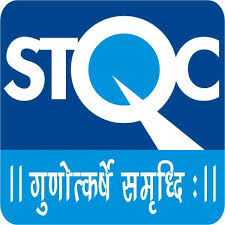88 years later, Tagore comes to China again

Chinese actor from Lanzhou University performing Rabindranath Tagore's 'Chitrangada'. Photo : Special Arrangement
When Rabindranath Tagore set foot in Shanghai in 1924, he began a whirlwind tour that left behind a complicated legacy.
Welcomed as a wise and sage-like figure by intellectuals and liberal romantics, Tagore was also vilified by Western-influenced and nationalist supporters of the ‘May 4 movement,' seen as an anti-modern and unwelcome throwback.
Strong criticism and protests greeted his first visit, which marked for China a long and complex relationship with Tagore. Over decades, however, his literature came to be widely loved by Chinese intellectuals — so much so that even today, Tagore is studied in Chinese high schools and universities, and perhaps given more attention than even in Indian schools.
Now, 88 years later after he first arrived in China, the poet is being remembered here through a unique tribute. On Saturday, Students at the Lanzhou University, in north-western Gansu province, will stage the first-ever Chinese language production of Tagore's play Chitrangada.
In coming weeks and months, the play will travel all over China — giving people in Beijing, Shanghai and Guangzhou a chance to reacquaint themselves with the figure who has, more than anyone else, shaped their imagination of India.
Behind the initiative is Mao Shichang, a professor at Lanzhou University whose love affair with Tagore began during a stint at Jawaharlal Nehru University, where he studied Indian epics.
“God of poems”
“Tagore was like the god of poems in my heart,” he told The Hindu in an interview. “Chinese people like the natural and fresh style of his writing. His spiritualism echoes in people's hearts.”
Professor Mao said Chinese people, “no matter whether they believe in religion or not, feel some supernatural power through his works.” “Modern people can seek peace and sobriety, and avoid the hustle and bustle of their lives, through Tagore,” he said.
He chose to perform Chitrangada, a fairy-tale about a warrior princess adapted from a story in the Mahabharata, because it showed “the beauty of love, the equality between women and men, and internal beauty”.
“Tagore's view of love was ahead of his times,” he said. “A fascinating play alone can't show the real culture of India, so we added a lot of original Indian elements, such as the costumes, original music, dance and background.”
Helping with the production is Chen Ziming from the Central Conservatory of Music, who has studied Indian music, and Beijing-based Bharatnatyam and classical danseuse Jin Shanshan. The production is being supported by the Indian Embassy here.
“A Tagore play, done by the Chinese and in the Chinese language, is worthy of support,” Ambassador to China S. Jaishankar told The Hindu.
“There is a sense of Tagore as an intellectual bridge between India and China, and as a person who stood up for China during difficult days. There is also a much greater appreciation of Tagore today, and of the things he said back in the 1920s.”
Mr. Jaishankar said “there isn't a single Chinese university where they do not know Tagore,” making him a “very effective symbolic figure” to reach out to the intelligentsia and students.
“A lot of people can dismiss his pan-Asian message as a Utopian thought,” said Bivash Mukherjee, an Indian journalist in Shanghai who has produced a documentary on Tagore's visit to China and helped revive interest in Tagore's China connection. “Even back then, it was welcomed by few people, and his visit, because of the turmoil China was going through then, was seen by some as coming to the wrong place at the wrong time”.
But despite the controversy, Tagore's image remarkably endured — something even Mr. Mukherjee is “mystified” by. “Perhaps it was because he was an intellectual from the East, and someone whose ideas they identified with,” he suggested.
Tagore himself, in his first speech in Shanghai in 1924, offered a clue. “I say that a poet's mission,” he said, “is to attract the voice which is yet inaudible in the air; to inspire faith in the dream which is unfulfilled; to bring the earliest tidings of the unborn flower to a sceptic world.”
Chinese students enact Mandarin production of Tagore's play Press Trust of India / Beijing Mar 24, 2012, 18:28 IST
Rediscovering the trail of famous journey of Nobel Laureate, Rabindranath Tagore to China in 1924, a group of Chinese students today staged his famous play "Chitrangada" at a university in northwest Gansu province.
Regarded as the first ever Chinese production of Tagore's works, which have been widely translated into Mandarin, the students trained by Prof. Mao Shichang, who worked on the great poet's works for many years, enthralled the audience, senior Indian diplomat, Arun Sahu who attended the function told PTI.
Indian Ambassador, S Jaishankar and several Chinese officials and academics witnessed the first ever drama production which was expected to be staged in several other Chinese cities in the coming months.
Speaking at the function, Jaishankar said "it is fitting that Tagore's play is being enacted at a venue that is at the heart of the Silk Road connectivity between India and China", he said. "Tagore himself was an intellectual bridge between our two countries.
As we watch the play today, let us collectively dedicate ourselves to the promotion of stronger friendship between India and China" he said. It is only befitting that the drama is being inaugurated this year, which has been accepted by leaders of both countries as the 'Year of Friendship and Co-operation', he said.
Staging of Chitrangada stands for the shared culture between India and China, the oriental ethos and shared existence of the Indian and Chinese civilisations, Sahu said, adding that the co-production is set to move to other cities of China, such as Beijing, Shanghai, Chengdu, Guangzhou, Shenzhen.
Tagore visited China twice, in 1924 and in 1929 and his visits during the height of the country's revolution have left a trail of deep impressions on many a Chinese writers and poets at that time.
So much so that during the 60th year of celebrations of People Republic of China, Tagore along with Jawaharlal Nehru was voted by Chinese as some of the few eminent foreign personalities who influenced China.
Both India and China have been organising several events relating to Tagore's travels in an attempt to rekindle the spirit of friendship and cultural links.
In his recent speeches Jaishankar has highlighted Tagore's speeches predicting shift of world power towards Asia. "At a time when it is fashionable to talk of a shift of power towards Asia, we might do well to remember Tagore as the prophet of Asia's revival", he said.






























